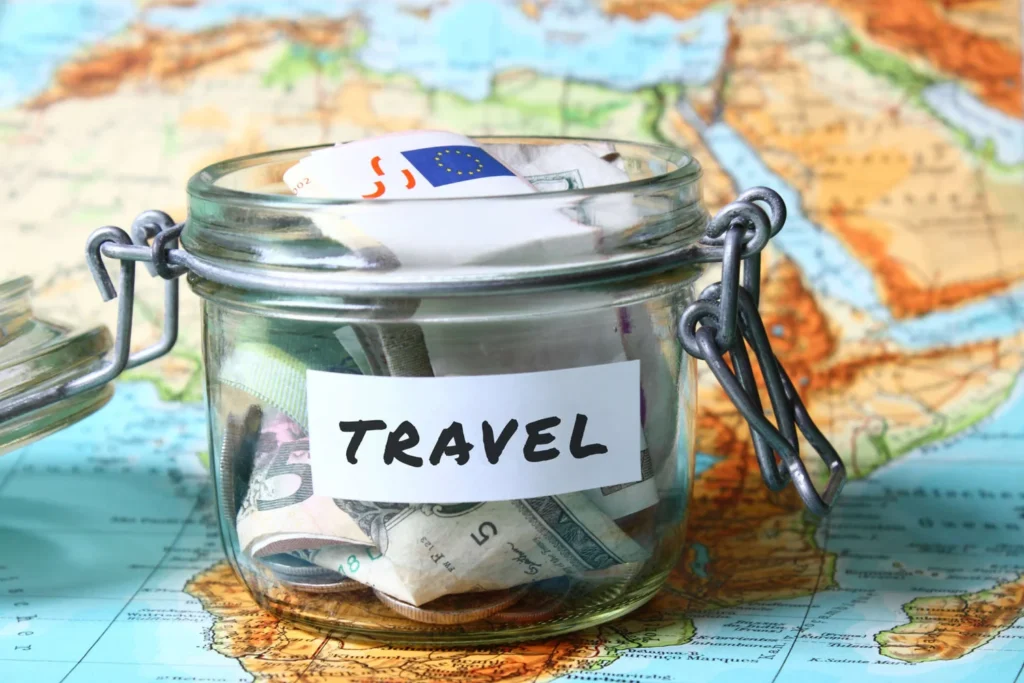There’s something magical about booking your next trip, checking destinations off your bucket list, and collecting memories along the way. If you’re someone who loves to travel frequently, you know how exciting it feels to plan one adventure after another. But you also know that traveling often isn’t just about choosing the next destination. It’s about managing your finances in a way that keeps those trips stress-free.
The truth is, frequent travel requires more than a spur-of-the-moment decision and a plane ticket. It takes careful financial planning so that you’re not cutting corners or worrying about overspending once you arrive. The good news is that budgeting for travel doesn’t have to be about strict limits or sacrificing the fun parts of your trip. Instead, it’s about creating a sustainable system that allows you to say “yes” to more adventures without draining your bank account.
A big part of that system is finding ways to consistently fund your trips, whether by saving intentionally or growing your income. And that’s where the first step comes in, building a dedicated travel fund that works for you.
Building a Travel Fund: More Than Just Saving
Having a travel fund gives you the freedom to say yes to opportunities without worrying about whether you can afford them. The first step is to treat this fund as a non-negotiable part of your budget. Setting aside even a small portion of your monthly income can add up quickly when you’re consistent. Cut back on unnecessary subscriptions, cook at home a few extra nights a week, or delay impulse purchases; all of these small changes can funnel more money into your travel account.
But saving isn’t the only way to make this fund grow. Consider making passive income to give your travel fund a steady boost without adding extra work to your schedule. It could mean setting up investments that earn interest or dividends, renting out a spare room when you’re not home, or creating a side project that continues to generate earnings even while you’re away. The beauty of this approach is that it gives you more financial breathing room, helping you plan trips faster and with less stress.
Once you’ve got a system in place, you’ll feel more confident about your finances and ready to dive into the rest of the planning process.
Planning to Lock in Savings
Booking early is one of the easiest ways to cut travel costs. Airfare, accommodations, and even some activities are usually cheaper when reserved weeks or months in advance. Planning also means you have more options for dates and destinations, letting you take advantage of lower prices during off-peak seasons.
Set up alerts for flights and compare prices across multiple booking platforms before you commit. Not only does this help you find the best deal, but it also prevents last-minute scrambling, which often leads to overspending. If you’re flexible with your travel dates, you can often save hundreds of dollars by flying midweek or during shoulder seasons when demand is lower.
Budget-Friendly Accommodation Strategies
Where you stay can have a huge impact on your travel budget. If you’re traveling often, consider mixing up your accommodation choices: hotels for short trips, vacation rentals for longer stays, and even house-sitting opportunities that let you stay somewhere for free while caring for someone’s home or pets.
Choosing places with kitchen access can also save money by allowing you to cook some of your meals instead of eating out all the time. If you enjoy meeting new people, hostels can be a budget-friendly and social option. And if you travel frequently to the same destination, building a relationship with a local property owner could score you repeat-guest discounts.
Tracking Expenses While Traveling
One of the easiest ways to overspend on a trip is to lose track of what you’re spending day by day. You don’t need to track every penny in a spreadsheet, but using a budgeting app or simply setting a daily spending limit can make a big difference.
If you see you’re getting close to your daily limit, you can make small adjustments, maybe swapping a fancy dinner for a quick local meal or skipping an extra souvenir. This small habit keeps you in control of your budget and ensures you won’t be caught off guard when you check your account after returning home.
Making the Most of Loyalty Programs and Points
Frequent travelers can save a significant amount of money by taking advantage of loyalty programs. Airlines, hotel chains, and even some credit cards offer points or miles that can be redeemed for flights, room upgrades, or other travel perks.
Focus on one or two programs that fit your travel habits and put most of your bookings through them to maximize your rewards. Over time, you’ll rack up enough points to cover major expenses, turning your future trips into even better deals. Just be sure to use points strategically; saving them for high-cost purchases can stretch their value even further.
Eating Smart Without Missing Out
Food is one of the best parts of traveling, but it can also become one of the biggest expenses. A great strategy is to mix high-end dining with budget-friendly meals. Grab breakfast at your accommodation if it’s included, pack snacks for excursions, and explore local markets for fresh, affordable options.
When you do splurge on a meal, make it count by trying a restaurant that’s well-known in the area or offers a unique cultural experience. That way, you’re spending money where it matters most and creating memories you won’t forget.
Leave Room for Spontaneity Without Blowing the Budget
Even the best-planned trips have surprises; sometimes, the best memories come from those unplanned moments. Build a “fun fund” into your budget for spontaneous activities like a last-minute boat tour, a cooking class you discover on arrival, or a street performance that inspires you to buy tickets for the evening show.
By setting aside money specifically for spontaneity, you won’t feel guilty about spending it. Instead, you’ll have the freedom to enjoy unexpected opportunities while still keeping your finances on track.
Smart budgeting isn’t about restricting yourself. It’s about giving yourself more opportunities to explore the world. By building a travel fund, planning, tracking expenses, and using loyalty programs, you can travel more often without worrying about money.
Adding extra income through smart strategies like passive earnings can make the process even easier, giving you the freedom to say yes to more adventures. With the right plan, you can turn your passion for travel into a regular part of your life, making every trip less stressful and far more rewarding.










